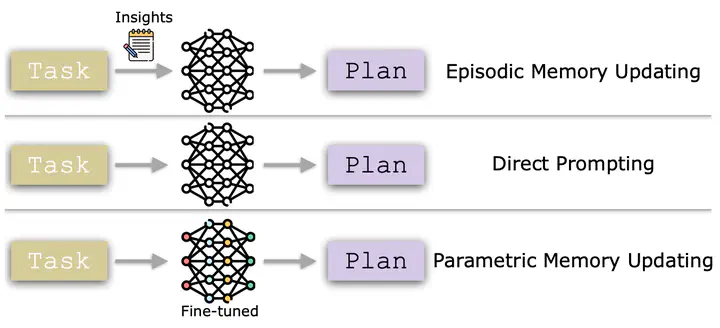 Memory updating strategies for language agents. Insights are learned from previous attempts.
Memory updating strategies for language agents. Insights are learned from previous attempts.
Abstract
Autonomous planning has been an ongoing pursuit since the inception of artificial intelligence. Based on curated problem solvers, early planning agents could deliver precise solutions for specific tasks but lacked generalization. The emergence of large language models (LLMs) and their powerful reasoning capabilities has reignited interest in autonomous planning by automatically generating reasonable solutions for given tasks. However, prior research and our experiments show that current language agents still lack human-level planning abilities. Even the state-of-the-art reasoning model, OpenAI o1, achieves only 15.6% on one of the complex real-world planning benchmarks. This highlights a critical question: What hinders language agents from achieving human-level planning? Although existing studies have highlighted weak performance in agent planning, the deeper underlying issues and the mechanisms and limitations of the strategies proposed to address them remain insufficiently understood. In this work, we apply the feature attribution study and identify two key factors that hinder agent planning: the limited role of constraints and the diminishing influence of questions. We also find that although current strategies help mitigate these challenges, they do not fully resolve them, indicating that agents still have a long way to go before reaching human-level intelligence.